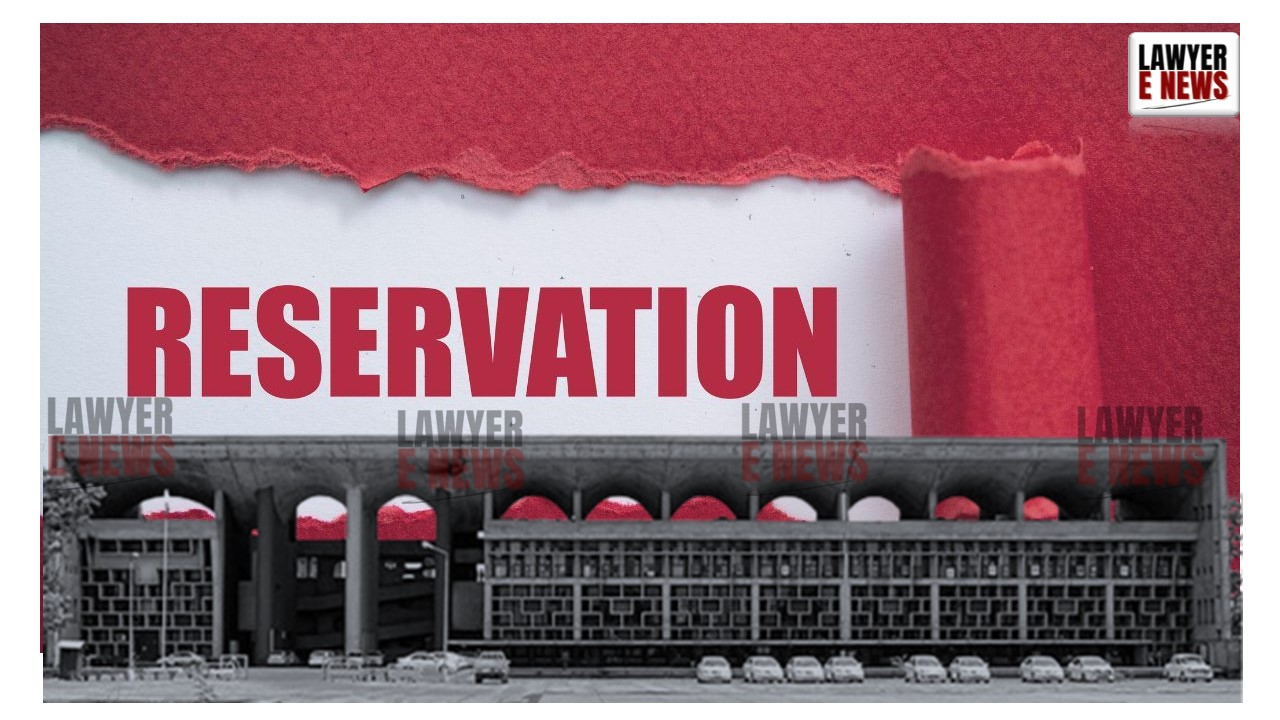-
by Admin
15 February 2026 2:36 AM



Punjab and Haryana High Court delivered a landmark judgment in Sikander Singh & Others v. State of Punjab & Others, addressing the contentious issue of reservation for Economically Weaker Sections (EWS) in public employment. The Court quashed the merit lists and reservation criteria applied by the Punjab Public Service Commission (PPSC) in recruiting Agriculture Development Officers, holding that the State’s interpretation of EWS reservation was unconstitutional. This judgment mandates the State to treat EWS candidates who qualify on merit as part of the General Category, not counting them towards the reserved EWS quota.
The Punjab Public Service Commission (PPSC) issued an advertisement on January 30, 2020, for recruiting 141 Agriculture Development Officers. This recruitment included 10% reservation for Economically Weaker Sections (EWS) in line with the state’s policy under Article 16(6) of the Constitution of India. However, the petitioners, who belonged to the EWS category and scored higher than the General Category cutoff, argued that they should be considered for unreserved seats rather than being restricted to EWS-designated seats. The PPSC, however, counted these high-scoring EWS candidates solely within the EWS reserved quota, thereby excluding them from General Category consideration.
The petitioners challenged this approach, arguing that it was arbitrary and violated constitutional principles of equality. They sought to quash the merit lists and the criteria applied, arguing that EWS candidates who meet the General Category cutoff should be considered as General Category candidates.
The primary issue revolved around the interpretation of Article 16(6), which provides for reservation in favor of economically weaker sections. The petitioners argued that the State’s interpretation of this provision was flawed, as it restricted EWS candidates to their reserved quota even if they qualified on merit in the General Category.
The Court analyzed Article 16(6) and clarified that the EWS reservation was intended to provide additional opportunities for economically weaker candidates, not to limit their eligibility. It held that if EWS candidates meet the general merit criteria, they should be considered under the General Category, ensuring that the EWS quota is utilized for candidates who genuinely require it.
"EWS reservation is a vertical reservation," the Court observed. "Candidates qualifying on merit should not be counted towards the EWS quota as it deprives other EWS candidates of the benefits intended by the reservation."
The Court also scrutinized the office memorandum dated October 30, 2020, issued by the Punjab Government, which required EWS candidates selected on merit to be counted within the EWS quota. The petitioners argued that these instructions should not retroactively apply to the recruitment process initiated on January 30, 2020. The Court agreed, finding that the memorandum should apply prospectively and could not affect the ongoing recruitment process.
The Court further noted inconsistencies in the State's approach, as other jurisdictions, including the Government of India and neighboring states, allowed EWS candidates who qualified on merit to compete for unreserved seats without being restricted to EWS quotas.
The Court referred to the Supreme Court's ruling in Janhit Abhiyan v. Union of India (2023), which upheld the constitutionality of EWS reservation but clarified that such reservation should not undermine the principle of merit. It also cited Rajesh Kumar Daria v. Rajasthan Public Service Commission (2007) and Indra Sawhney v. Union of India (1992), distinguishing between horizontal and vertical reservations and emphasizing that candidates qualifying on merit should not be included in reserved quotas.
"The reservation system must be applied in a way that preserves merit-based selection while providing opportunities for economically disadvantaged groups," the Court stated.
In a significant verdict, the High Court quashed the merit lists for the General and EWS categories published by the PPSC on July 17, 2020, and February 18, 2021. The Court held that the Punjab Government's interpretation of EWS reservation was flawed and contrary to constitutional principles. It directed the State to prepare a new merit list for the Agriculture Development Officer positions, counting EWS candidates who qualified on merit as General Category candidates.
Re-casting of Merit Lists: The Punjab Public Service Commission is directed to prepare new merit lists, placing EWS candidates in the General Category if they qualify based on merit, rather than restricting them to the EWS quota.
Setting Aside of Clause 8 of the October 30, 2020 Memorandum: The Court quashed Clause 8 of the memorandum, which mandated that EWS candidates selected on merit be counted within the EWS reserved quota, as well as the subsequent clarification issued on March 18, 2021.
Prospective Application: The Court clarified that the October 30, 2020 memorandum cannot retroactively apply to recruitment processes initiated before its issuance.
Constitutional Compliance: The Court instructed the State to adhere to constitutional provisions under Articles 15 and 16, ensuring that EWS reservation is implemented without infringing on the rights of meritorious candidates.
This judgment reinforces the principles of merit-based selection within the framework of reservation policies. By allowing EWS candidates who meet the General Category cutoff to compete for unreserved seats, the Punjab and Haryana High Court has set a precedent to ensure that reservation benefits reach those truly in need without diluting the principle of merit. The ruling underscores that reservation should facilitate inclusion without compromising the integrity of the recruitment process.
Date of Decision: October 14, 2024
